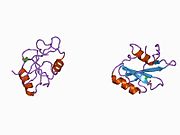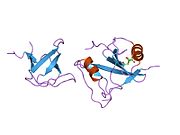| SH2D1A | |||||||||||||||||||||||||||||||||||||||||||||||||||
|---|---|---|---|---|---|---|---|---|---|---|---|---|---|---|---|---|---|---|---|---|---|---|---|---|---|---|---|---|---|---|---|---|---|---|---|---|---|---|---|---|---|---|---|---|---|---|---|---|---|---|---|
 | |||||||||||||||||||||||||||||||||||||||||||||||||||
| |||||||||||||||||||||||||||||||||||||||||||||||||||
| Identifiers | |||||||||||||||||||||||||||||||||||||||||||||||||||
| Aliases | SH2D1A, DSHP, EBVS, IMD5, LYP, MTCP1, SAP, SAP/XLP, XLPD, XLPD1, SH2 domain containing 1A | ||||||||||||||||||||||||||||||||||||||||||||||||||
| External IDs | OMIM: 300490; MGI: 1328352; HomoloGene: 1762; GeneCards: SH2D1A; OMA:SH2D1A - orthologs | ||||||||||||||||||||||||||||||||||||||||||||||||||
| |||||||||||||||||||||||||||||||||||||||||||||||||||
| |||||||||||||||||||||||||||||||||||||||||||||||||||
| |||||||||||||||||||||||||||||||||||||||||||||||||||
| |||||||||||||||||||||||||||||||||||||||||||||||||||
| |||||||||||||||||||||||||||||||||||||||||||||||||||
| Wikidata | |||||||||||||||||||||||||||||||||||||||||||||||||||
| |||||||||||||||||||||||||||||||||||||||||||||||||||
SH2 domain–containing protein 1A is a protein that in humans is encoded by the SH2D1A gene. It is often called SLAM-associated protein (symbol SAP), where "SLAM" refers to signaling lymphocytic activation molecules. It is a SH2 domain–containing molecule (part of a family of such molecules) that plays a role in SLAM signaling. A putative function is as an adaptor for Fyn and competitor of phosphatases, leading to modulation of SLAM family function. SAP has been implicated in autoimmunity, and a mutation of it is associated with X-linked lymphoproliferative disease. At least 32 disease-causing mutations in this gene have been discovered.
Interactions
SH2D1A has been shown to interact with:
References
- ^ GRCh38: Ensembl release 89: ENSG00000183918 – Ensembl, May 2017
- ^ GRCm38: Ensembl release 89: ENSMUSG00000005696 – Ensembl, May 2017
- "Human PubMed Reference:". National Center for Biotechnology Information, U.S. National Library of Medicine.
- "Mouse PubMed Reference:". National Center for Biotechnology Information, U.S. National Library of Medicine.
- Coffey AJ, Brooksbank RA, Brandau O, Oohashi T, Howell GR, Bye JM, Cahn AP, Durham J, Heath P, Wray P, Pavitt R, Wilkinson J, Leversha M, Huckle E, Shaw-Smith CJ, Dunham A, Rhodes S, Schuster V, Porta G, Yin L, Serafini P, Sylla B, Zollo M, Franco B, Bolino A, Seri M, Lanyi A, Davis JR, Webster D, Harris A, Lenoir G, de St Basile G, Jones A, Behloradsky BH, Achatz H, Murken J, Fassler R, Sumegi J, Romeo G, Vaudin M, Ross MT, Meindl A, Bentley DR (Oct 1998). "Host response to EBV infection in X-linked lymphoproliferative disease results from mutations in an SH2-domain encoding gene". Nature Genetics. 20 (2): 129–35. doi:10.1038/2424. PMID 9771704. S2CID 9347438.
- Sayos J, Wu C, Morra M, Wang N, Zhang X, Allen D, van Schaik S, Notarangelo L, Geha R, Roncarolo MG, Oettgen H, De Vries JE, Aversa G, Terhorst C (Oct 1998). "The X-linked lymphoproliferative-disease gene product SAP regulates signals induced through the co-receptor SLAM". Nature. 395 (6701): 462–9. Bibcode:1998Natur.395..462S. doi:10.1038/26683. PMID 9774102. S2CID 4324402.
- "Entrez Gene: SH2D1A SH2 domain protein 1A, Duncan's disease (lymphoproliferative syndrome)".
- Menard M, et al. (2014). "Signaling lymphocytic activation molecule (SLAM)/SLAM-associated protein pathway regulates human B-cell tolerance". Journal of Allergy and Clinical Immunology. 133 (4): 1149–1161. doi:10.1016/j.jaci.2013.10.051. PMC 4077428. PMID 24373350.
- Šimčíková D, Heneberg P (December 2019). "Refinement of evolutionary medicine predictions based on clinical evidence for the manifestations of Mendelian diseases". Scientific Reports. 9 (1): 18577. Bibcode:2019NatSR...918577S. doi:10.1038/s41598-019-54976-4. PMC 6901466. PMID 31819097.
- Tangye SG, Nichols KE, Hare NJ, van de Weerdt BC (Sep 2003). "Functional requirements for interactions between CD84 and Src homology 2 domain-containing proteins and their contribution to human T cell activation". Journal of Immunology. 171 (5): 2485–95. doi:10.4049/jimmunol.171.5.2485. PMID 12928397.
- ^ Sayós J, Martín M, Chen A, Simarro M, Howie D, Morra M, Engel P, Terhorst C (Jun 2001). "Cell surface receptors Ly-9 and CD84 recruit the X-linked lymphoproliferative disease gene product SAP". Blood. 97 (12): 3867–74. doi:10.1182/blood.v97.12.3867. PMID 11389028. S2CID 10530544.
- Tangye SG, van de Weerdt BC, Avery DT, Hodgkin PD (Jun 2002). "CD84 is up-regulated on a major population of human memory B cells and recruits the SH2 domain containing proteins SAP and EAT-2". European Journal of Immunology. 32 (6): 1640–9. doi:10.1002/1521-4141(200206)32:6<1640::AID-IMMU1640>3.0.CO;2-S. PMID 12115647.
- ^ Morra M, Simarro-Grande M, Martin M, Chen AS, Lanyi A, Silander O, Calpe S, Davis J, Pawson T, Eck MJ, Sumegi J, Engel P, Li SC, Terhorst C (Sep 2001). "Characterization of SH2D1A missense mutations identified in X-linked lymphoproliferative disease patients". The Journal of Biological Chemistry. 276 (39): 36809–16. doi:10.1074/jbc.M101305200. hdl:2437/230556. PMID 11477068.
- Sylla BS, Murphy K, Cahir-McFarland E, Lane WS, Mosialos G, Kieff E (Jun 2000). "The X-linked lymphoproliferative syndrome gene product SH2D1A associates with p62dok (Dok1) and activates NF-kappa B". Proceedings of the National Academy of Sciences of the United States of America. 97 (13): 7470–5. Bibcode:2000PNAS...97.7470S. doi:10.1073/pnas.130193097. PMC 16569. PMID 10852966.
- Li C, Iosef C, Jia CY, Han VK, Li SS (Feb 2003). "Dual functional roles for the X-linked lymphoproliferative syndrome gene product SAP/SH2D1A in signaling through the signaling lymphocyte activation molecule (SLAM) family of immune receptors". The Journal of Biological Chemistry. 278 (6): 3852–9. doi:10.1074/jbc.M206649200. PMID 12458214.
- Chan B, Lanyi A, Song HK, Griesbach J, Simarro-Grande M, Poy F, Howie D, Sumegi J, Terhorst C, Eck MJ (Feb 2003). "SAP couples Fyn to SLAM immune receptors". Nature Cell Biology. 5 (2): 155–60. doi:10.1038/ncb920. PMID 12545174. S2CID 9840321.
- Howie D, Simarro M, Sayos J, Guirado M, Sancho J, Terhorst C (Feb 2002). "Molecular dissection of the signaling and costimulatory functions of CD150 (SLAM): CD150/SAP binding and CD150-mediated costimulation". Blood. 99 (3): 957–65. doi:10.1182/blood.v99.3.957. PMID 11806999.
Further reading
- Sumegi J, Seemayer TA, Huang D, Davis JR, Morra M, Gross TG, Yin L, Romco G, Klein E, Terhorst C, Lanyi A (Jun 2002). "A spectrum of mutations in SH2D1A that causes X-linked lymphoproliferative disease and other Epstein-Barr virus-associated illnesses". Leukemia & Lymphoma. 43 (6): 1189–201. doi:10.1080/10428190290026240. PMID 12152986. S2CID 44576367.
- Engel P, Eck MJ, Terhorst C (Oct 2003). "The SAP and SLAM families in immune responses and X-linked lymphoproliferative disease". Nature Reviews. Immunology. 3 (10): 813–21. doi:10.1038/nri1202. PMID 14523387. S2CID 1490779.
- Stern MH, Soulier J, Rosenzwajg M, Nakahara K, Canki-Klain N, Aurias A, Sigaux F, Kirsch IR (Sep 1993). "MTCP-1: a novel gene on the human chromosome Xq28 translocated to the T cell receptor alpha/delta locus in mature T cell proliferations". Oncogene. 8 (9): 2475–83. PMID 8361760.
- Skare J, Wu BL, Madan S, Pulijaal V, Purtilo D, Haber D, Nelson D, Sylla B, Grierson H, Nitowsky H (Apr 1993). "Characterization of three overlapping deletions causing X-linked lymphoproliferative disease". Genomics. 16 (1): 254–5. doi:10.1006/geno.1993.1169. PMID 8387453.
- Nichols KE, Harkin DP, Levitz S, Krainer M, Kolquist KA, Genovese C, Bernard A, Ferguson M, Zuo L, Snyder E, Buckler AJ, Wise C, Ashley J, Lovett M, Valentine MB, Look AT, Gerald W, Housman DE, Haber DA (Nov 1998). "Inactivating mutations in an SH2 domain-encoding gene in X-linked lymphoproliferative syndrome". Proceedings of the National Academy of Sciences of the United States of America. 95 (23): 13765–70. Bibcode:1998PNAS...9513765N. doi:10.1073/pnas.95.23.13765. PMC 24894. PMID 9811875.
- Poy F, Yaffe MB, Sayos J, Saxena K, Morra M, Sumegi J, Cantley LC, Terhorst C, Eck MJ (Oct 1999). "Crystal structures of the XLP protein SAP reveal a class of SH2 domains with extended, phosphotyrosine-independent sequence recognition". Molecular Cell. 4 (4): 555–61. doi:10.1016/S1097-2765(00)80206-3. PMID 10549287.
- Li SC, Gish G, Yang D, Coffey AJ, Forman-Kay JD, Ernberg I, Kay LE, Pawson T (Dec 1999). "Novel mode of ligand binding by the SH2 domain of the human XLP disease gene product SAP/SH2D1A". Current Biology. 9 (23): 1355–62. doi:10.1016/S0960-9822(00)80080-9. PMID 10607564.
- Sylla BS, Murphy K, Cahir-McFarland E, Lane WS, Mosialos G, Kieff E (Jun 2000). "The X-linked lymphoproliferative syndrome gene product SH2D1A associates with p62dok (Dok1) and activates NF-kappa B". Proceedings of the National Academy of Sciences of the United States of America. 97 (13): 7470–5. Bibcode:2000PNAS...97.7470S. doi:10.1073/pnas.130193097. PMC 16569. PMID 10852966.
- Benoit L, Wang X, Pabst HF, Dutz J, Tan R (Oct 2000). "Defective NK cell activation in X-linked lymphoproliferative disease". Journal of Immunology. 165 (7): 3549–53. doi:10.4049/jimmunol.165.7.3549. PMID 11034354.
- Nagy N, Cerboni C, Mattsson K, Maeda A, Gogolák P, Sümegi J, Lányi A, Székely L, Carbone E, Klein G, Klein E (Nov 2000). "SH2D1A and SLAM protein expression in human lymphocytes and derived cell lines". International Journal of Cancer. 88 (3): 439–47. doi:10.1002/1097-0215(20001101)88:3<439::AID-IJC17>3.0.CO;2-#. PMID 11054674. S2CID 196589196.
- Shlapatska LM, Mikhalap SV, Berdova AG, Zelensky OM, Yun TJ, Nichols KE, Clark EA, Sidorenko SP (May 2001). "CD150 association with either the SH2-containing inositol phosphatase or the SH2-containing protein tyrosine phosphatase is regulated by the adaptor protein SH2D1A". Journal of Immunology. 166 (9): 5480–7. doi:10.4049/jimmunol.166.9.5480. PMID 11313386.
- Sayós J, Martín M, Chen A, Simarro M, Howie D, Morra M, Engel P, Terhorst C (Jun 2001). "Cell surface receptors Ly-9 and CD84 recruit the X-linked lymphoproliferative disease gene product SAP". Blood. 97 (12): 3867–74. doi:10.1182/blood.V97.12.3867. PMID 11389028. S2CID 10530544.
- Morra M, Simarro-Grande M, Martin M, Chen AS, Lanyi A, Silander O, Calpe S, Davis J, Pawson T, Eck MJ, Sumegi J, Engel P, Li SC, Terhorst C (Sep 2001). "Characterization of SH2D1A missense mutations identified in X-linked lymphoproliferative disease patients". The Journal of Biological Chemistry. 276 (39): 36809–16. doi:10.1074/jbc.M101305200. hdl:2437/230556. PMID 11477068.
- Latour S, Gish G, Helgason CD, Humphries RK, Pawson T, Veillette A (Aug 2001). "Regulation of SLAM-mediated signal transduction by SAP, the X-linked lymphoproliferative gene product". Nature Immunology. 2 (8): 681–90. doi:10.1038/90615. PMID 11477403. S2CID 23206045.
- Bottino C, Falco M, Parolini S, Marcenaro E, Augugliaro R, Sivori S, Landi E, Biassoni R, Notarangelo LD, Moretta L, Moretta A (Aug 2001). "NTB-A [correction of GNTB-A], a novel SH2D1A-associated surface molecule contributing to the inability of natural killer cells to kill Epstein-Barr virus-infected B cells in X-linked lymphoproliferative disease". The Journal of Experimental Medicine. 194 (3): 235–46. doi:10.1084/jem.194.3.235. PMC 2193462. PMID 11489943.
- Liu A, Klein G, Bandobashi K, Klein E, Nagy N (Mar 2002). "SH2D1A expression reflects activation of T and NK cells in cord blood lymphocytes infected with EBV and treated with the immunomodulator PSK". Immunology Letters. 80 (3): 181–8. doi:10.1016/S0165-2478(01)00330-3. PMID 11803050.
- Howie D, Simarro M, Sayos J, Guirado M, Sancho J, Terhorst C (Feb 2002). "Molecular dissection of the signaling and costimulatory functions of CD150 (SLAM): CD150/SAP binding and CD150-mediated costimulation". Blood. 99 (3): 957–65. doi:10.1182/blood.V99.3.957. PMID 11806999.
- Aoukaty A, Tan R (Apr 2002). "Association of the X-linked lymphoproliferative disease gene product SAP/SH2D1A with 2B4, a natural killer cell-activating molecule, is dependent on phosphoinositide 3-kinase". The Journal of Biological Chemistry. 277 (15): 13331–7. doi:10.1074/jbc.M112029200. PMID 11815622.












